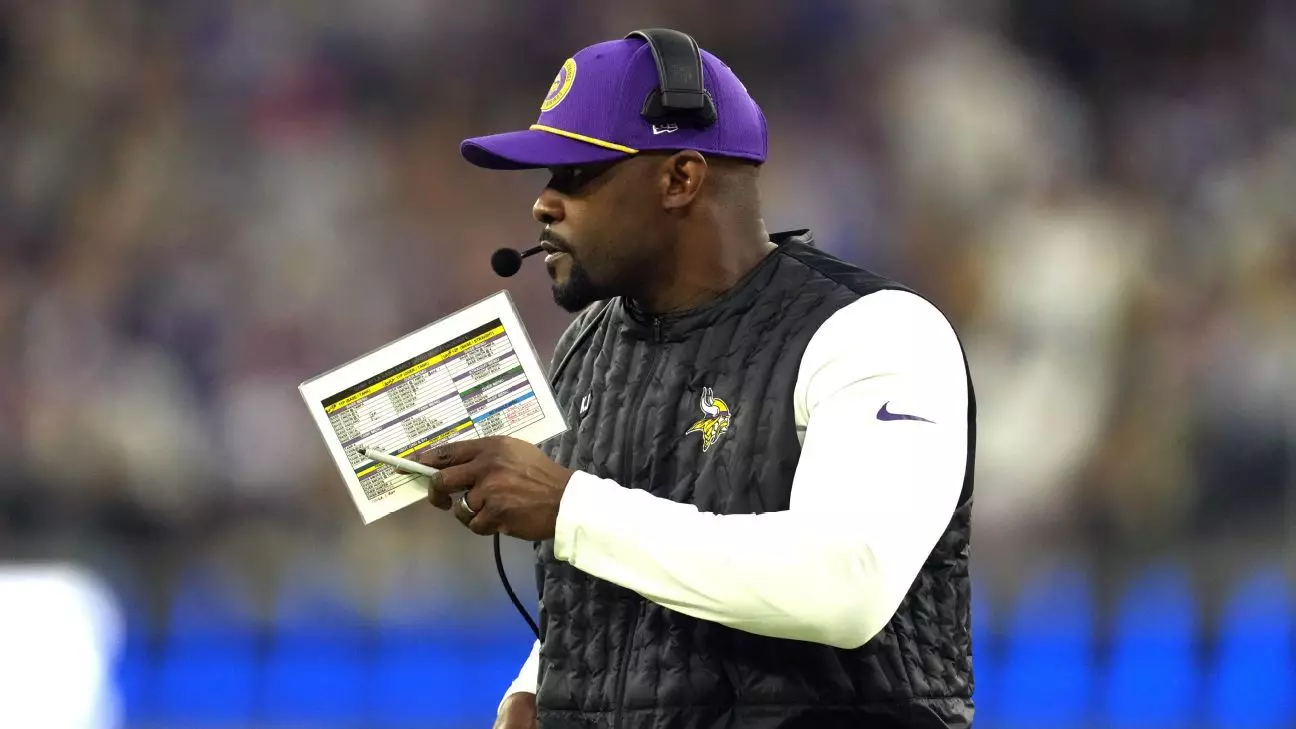The recent decision by the 2nd U.S. Circuit Court of Appeals marks a pivotal moment in the ongoing struggle against systemic racism within the National Football League (NFL). It exposes the underlying flaws in a league’s internal arbitration system, which historically has shielded the NFL and its leadership from accountability. By ruling that the league’s arbitration process is fundamentally flawed and does not meet federal standards, the court has opened a new pathway for addressing allegations of racial discrimination. This isn’t merely about a single coach’s fight; it symbolizes a broader push toward transparency and justice within a sport that wields immense influence and cultural power.
What makes this ruling profoundly significant is its critique of the league’s own rules—rules that have long been perceived as tools for consolidating power and sidestepping accountability. The court found the NFL’s arbitration clause, which designates Commissioner Roger Goodell as the ultimate decision-maker, to be “arbitration in name only.” Such a characterization underscores the system’s inherent bias: a monopolized process that lacks independence and fairness. This decision deconstructs the myth that private arbitration offers a genuinely neutral forum, revealing instead a troubling pattern of favoritism and concealment when it comes to addressing claims of discrimination.
Systemic Racism: A Crisis Embedded in the League’s Fabric
The lawsuit filed by Brian Flores shines a harsh light on the league’s supposed meritocracy. Despite representing a majority of players, Black coaches and staff remain shockingly underrepresented in coaching and executive roles. Flores’ allegations of racially biased hiring practices—specifically, that team owners and decision-makers unjustly sidelined qualified Black candidates—highlight a deep-rooted problem that goes well beyond individual cases. The court’s acknowledgment of “longstanding systematic discrimination” in the NFL provides a stark reminder: the cultural and institutional barriers preventing Black coaches from reaching higher echelons are as entrenched as the league’s storied history.
Flores’ courageous stand isn’t just about his personal career; it’s a symbolic fight for the marginalized coaches and staff who are routinely pushed aside. His willingness to challenge a league that has historically protected its interests demonstrates a commitment to broader societal change. It underscores the importance of holding powerful institutions accountable when their practices perpetuate inequality and injustice. The courtroom’s acknowledgment of the league’s failings may serve as a catalyst for other industries with similar biases—encouraging transparency and reform.
The Power Dynamics and The Fight for Fairness
The NFL’s response emphasizes its desire to maintain control over the narrative, with spokesperson Brian McCarthy stating intentions to seek further review. This defensive posture highlights an uncomfortable truth: powerful organizations often resist scrutiny, especially when their practices are challenged on ethical grounds. The league’s dismissive attitude towards this judicial critique reveals a mindset rooted in self-preservation rather than justice.
Meanwhile, Flores’ story exemplifies resilience amid systemic adversity. He’s a talented coach who faced obstacles rooted in racial bias, yet he chose to confront these issues head-on. His move to join the Vikings as defensive coordinator after a highly publicized ordeal reflects a relentless pursuit of fairness—what some might see as an act of defiance, others recognize as a battle for collective progress. His case embodies the ongoing tension between entrenched institutional interests and the need for reform rooted in fairness and equity.
The Larger Implications for Justice and Equality
This legal development could serve as a watershed moment far beyond the football field. It signals that systemic injustices—be they racial, gender-based, or otherwise—are increasingly subject to judicial scrutiny, especially when internal mechanisms fail to provide adequate remedies. The court’s critique of the NFL’s arbitration process underscores a broader message: justice must be transparent, unbiased, and accessible if progress is to be achieved.
In the broader societal context, this ruling underscores the importance of challenging institutional structures that maintain the status quo. It invites other marginalized groups and workers to question internal dispute mechanisms that often serve to protect those in power rather than those seeking justice. For industries and organizations that rely on “private” resolutions, this case raises a critical question about the fairness and legitimacy of such processes, emphasizing the need for external oversight and accountability.
This legal victory isn’t merely a win for Flores or the NFL coaches fighting against discrimination; it’s a rallying cry for change—calling into question the fairness of power structures that claim neutrality but operate with bias. It advocates for a future where justice isn’t hidden behind legal precedent or organizational shielding, but is accessible to all, regardless of race or status. The road ahead remains long, but this decision potentially sparks a necessary shift towards true equality in one of America’s most influential institutions.


Leave a Reply